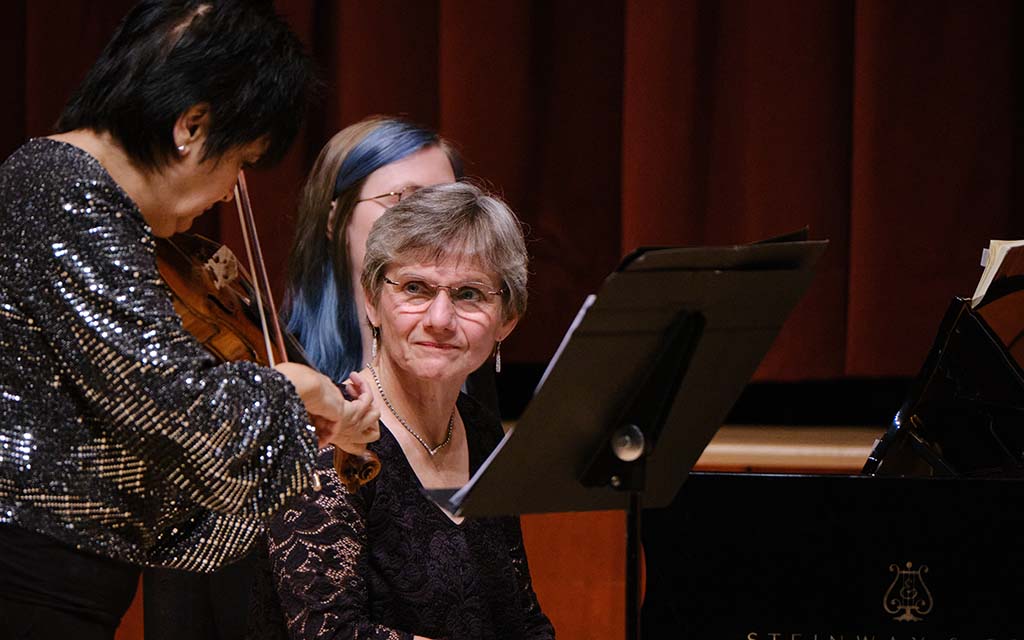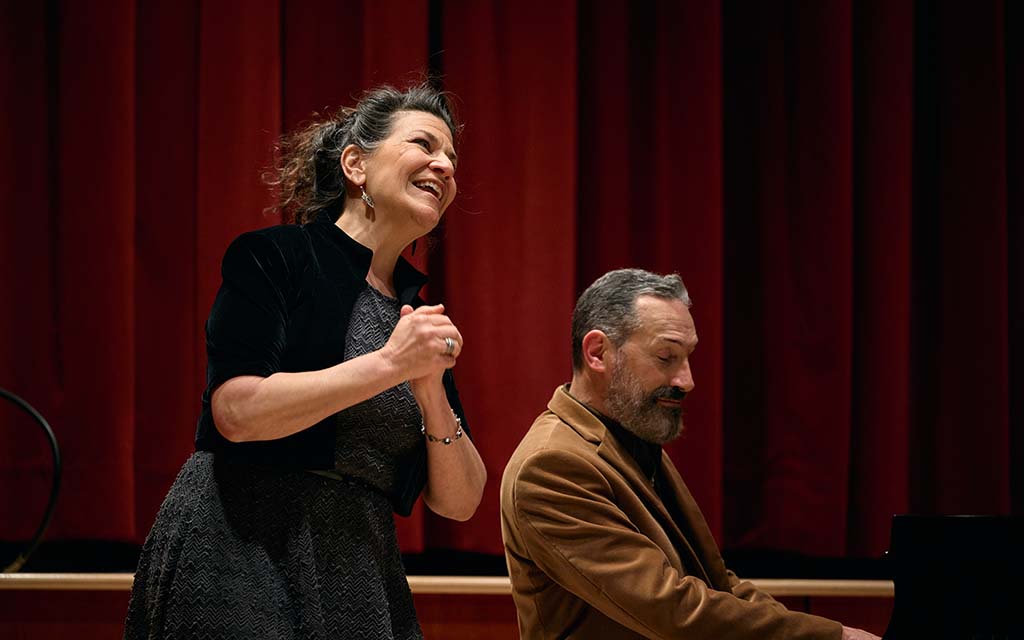ArtistCorps Alumni Stories: Alicia Armstrong
Alicia Armstrong served in ArtistCorps during the spring and summer of 2017. She has since sought out opportunities to hone her skills in arts engagement and is currently working with the Greensboro Opera. She and her husband will be moving to South Carolina later this spring.
What made you decide to serve in ArtistCorps?
My professor, Lawrence Dillon, told me about ArtistCorps during my first year at UNCSA and thought it might be a good fit. As I started looking into what they were doing, I realized it fit with my needs for flexibility with being in school, but also fulfilled my desire to get involved in the community and have a chance to grow in that way. My background was in music education, but I hadn’t done a lot with arts integration. The prospect of doing that was really exciting to me. I loved assisting with band and orchestra and teaching music, but I wanted to use the arts to strengthen understanding of other things.
What’s something you learned through service?
I think my favorite thing about serving with ArtistCorps was the guided independence. Even though we went through a lot of training and Rebecca Nussbaum was always willing to give feedback and advice, a lot of it we got to develop on our own.
I was part of an afternoon program at Crossnore Children’s Home during the summer. That experience really stretched my ability to be flexible. We didn’t know what we were going to walk into, what kids we’d be working with or if it was somebody we’d already had before, which meant that it was almost impossible to create lesson plans or to build from one day to another. That was difficult but valuable. It was a growing experience to have ideas going into it, but then learning to adjust them or trash them and start with something new depending on what each day was like.
Can you share a moment that stands out?
The first half of my service was really special even though I was coming into something that was already in progress. At the end of the last week with them, we had a time of saying goodbye and the students took turns directing compliments to each other. It’s incredible how strong a connection I developed with them, and I was only just there for a few months for two or three days a week.
During summer service at Crossnore, we often saw different kids every day. There’d be a few moments where there would be someone who was really not interested in participating at all, and then they would get pulled into whatever we were doing whether it was learning ukulele or doing improv games. Someone who didn’t want to be there or participate would get sucked into it and enjoy it and discover that it was more fun than they thought it would be.
How did service shape your perception of service or the communities you served?
It solidified for me the necessity for this kind of engagement in the arts and having different expectations of ourselves as artists in how we reach out to communities. We have to find that thing that makes the connection. You try a bunch of different things and just fail, and finally hit on the one thing that makes a connection. It takes effort but it’s worth the effort.
Has ArtistCorps influenced work since you left service?
After I left ArtistCorps I did summer internships with two different organizations working in music education. One of the organizations was KidzNotes in Durham which is focused on providing music education to kids, especially high-need students. That was a great opportunity to build on what I’d done with ArtistCorps, and see how another organization doing something similar was approaching it. Then I worked with the Greensboro Symphony and their education programs. That organization had a different goal that’s performance-based, but it was a great opportunity to see the range of different programs that they were creating to engage children with classical music.
Since then I’ve been working at the Greensboro Opera in an administrative role, but the opera has a strong emphasis on education and a desire to engage kids in the arts with the Opera at the Carolina program that they do every year and have been doing for 30 years now. They bus 5,000 5th graders to a theatre and present snippets of an opera in a way that would appeal to kids. It didn’t have the same interaction with kids one-on-one, but again, finding ways to bridge the gap of making something like opera fun for kids is really exciting.
What have you been up to recently?
My background is in composition, and I’ve continued that since graduating with a few smaller pieces, chamber music, and then the chance to have a string orchestra piece that I wrote performed by the Charlotte Symphony this spring. In some ways, those performances feel like a continuation of my experience in engagement and outreach, even though they’re reaching a different audience. They’re still part of programming that packages classical music in a new way. One concert took place in a brewery and they played Mozart, Holst and Haydn, and then they played this piece that I had written intermingled with humorous and engaging introductions and chances to interact with the musicians and the conductor. It was another take on presenting classical music to broadened audiences.
What’s on the horizon for you?
My husband and I are moving to Charleston, SC. It’s another very vibrant arts community so I’m excited to figure out the best way to get involved, to be proactive, which I’m realizing more and more how important that is. It’s impossible to maintain involvement in classical music without making an effort to create opportunities, especially as a composer. I’m excited to find an arts organization to be involved with, and hopefully continue to finding opportunities for performances of my music.
August 30, 2019





